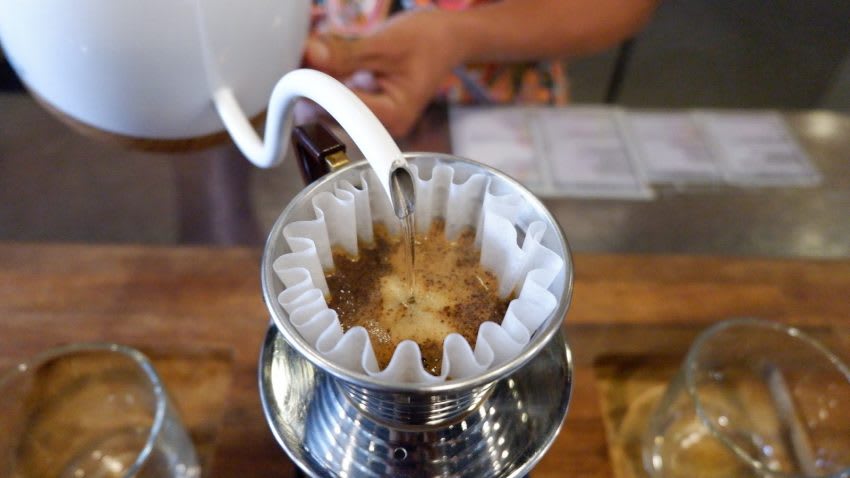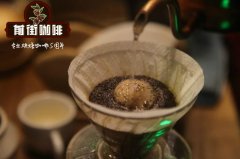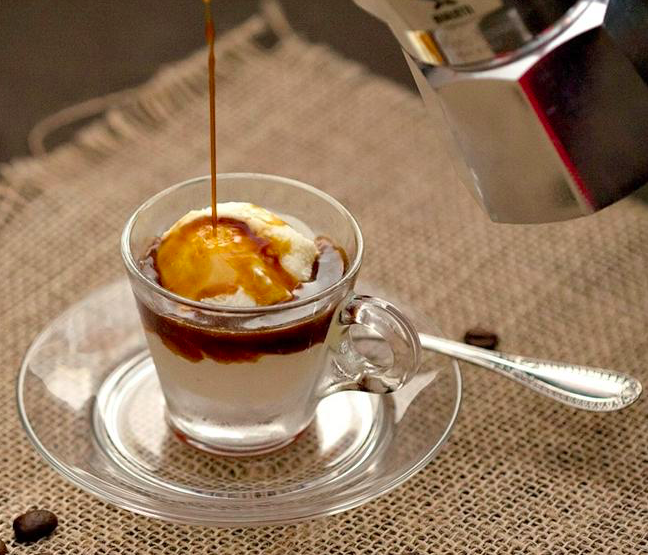[hand brewing skill] the key factor affecting coffee brewing: temperature
Professional coffee knowledge exchange more coffee bean information please follow the coffee workshop (Wechat official account cafe_style)
In the brewing process, water and coffee will undergo some complex chemical reactions, and the water temperature will directly affect the extraction rate of different components in the coffee during brewing. Water extracts quinic acid, amino acids and tannins, caffeine, oils and other substances from coffee. During the cooking process, different stages produce different reactions.
Today, the editor will share with you his views on the cooking temperature.

First of all, we imagine that there are some easily soluble substances in coffee and some substances that can be soaked for a long time to dissolve!
When brewing, we can imagine that substances such as sour, aroma, sweetness and bitterness are soaking in hot springs. Too high boiling temperature will make the coffee powder unbearable and dissolve all at once (so the high temperature only takes a short time to extract). When the brewing temperature is too low, everything dissolves very slowly, which can easily lead to insufficient extraction of coffee and no flavor.
What about at the right temperature? Which substances dissolve more easily? The answer is: sour substances. Sour substances are relatively small particles, molecules are also more active, so more afraid of high temperature, as long as in a higher cooking temperature, it is easy to rush out the sour taste in a short time, the strength of the acid will be more obvious. On the other hand, the carbohydrates that dominate sweetness are less active and take a certain amount of time to extract. When the sweetness is also extracted, the coffee flavor tends to be sour-sweet balance.
Therefore, we can also appropriately replace the water temperature setting with thinking about how high the temperature of your coffee is to dissolve the sweetness within a safe time.

Tips for making and cooking:
9198 ℃
High water temperature, high heat energy for coffee, fast dissolution rate and high extraction rate.
Advantages: can quickly improve the extraction rate; unrestrained aroma, bright acid, suitable for short-time extraction.
Risk: it takes a short time to finish the cooking.
8290 ℃
The water temperature is low, the heat energy of coffee is low, the dissolution rate is slow, and the extraction rate is low.
Advantages: a wide range of cooking safety, relatively easy to avoid bitterness, good balance between sweet and sour.
Risk: lack of extraction is likely.
Summary of brewing:
When ■ is cooked at the same temperature, sour substances are more afraid of heat and are easy to extract, while sweet substances are less likely to be extracted.
■, so it takes a little longer for the sweet substance to dissolve.
■ wants the sweet substance to dissolve quickly in the same soaking time, which can raise the temperature (but if the cooking time is not long enough, it may only accelerate the dissolution of more acid).
The too low cooking temperature of ■ makes the sour and sweet substances dissolve slowly, which will lead to insufficient extraction and light flavor.
Too high cooking temperature of ■ may accelerate the dissolution of negative flavor and cause bitterness.

To put it simply, if a cup of coffee tastes a little sour, you can try to increase the brewing temperature and match the appropriate brewing time, so that the sweet substance has time to accelerate sweating (dissolving) at the same time, so choose the appropriate temperature and soaking time. Can effectively regulate the sense of balance between sweet and sour.
I hope this simple explanation will be helpful to all of you.
Finally, leave a question for you: after brewing coffee is still too sour, if you can only adjust the brewing time and temperature, what will you do?
END
Important Notice :
前街咖啡 FrontStreet Coffee has moved to new addredd:
FrontStreet Coffee Address: 315,Donghua East Road,GuangZhou
Tel:020 38364473
- Prev

What is the Rainforest Alliance? What are the benefits of rainforest certification? how to drink rainforest alliance certified coffee?
Professional coffee knowledge exchange more coffee bean information please follow Coffee Workshop (Wechat official account cafe_style) 1; what is the Rainforest Alliance? Rainforest Alliance (RA) was founded in 1987, headquartered in New York, USA. It is not only a non-profit international non-governmental environmental protection organization, but also the largest and most authoritative professional FSC certification organization recognized by the international forest certification system FSC. Its
- Next

How do you make an Italian coffee dessert Alfjado Affogato? What is the moral of Avjiado Coffee Love Story
Professional coffee knowledge exchange more coffee bean information please follow the coffee workshop (Wechat official account cafe_style) the world-famous Italian dessert, which is closely related to its profound coffee culture. In addition to the popular "take me away" Tira Misu (Tiramis), this classic is not to be missed.
Related
- Beginners will see the "Coffee pull flower" guide!
- What is the difference between ice blog purified milk and ordinary milk coffee?
- Why is the Philippines the largest producer of crops in Liberia?
- For coffee extraction, should the fine powder be retained?
- How does extracted espresso fill pressed powder? How much strength does it take to press the powder?
- How to make jasmine cold extract coffee? Is the jasmine + latte good?
- Will this little toy really make the coffee taste better? How does Lily Drip affect coffee extraction?
- Will the action of slapping the filter cup also affect coffee extraction?
- What's the difference between powder-to-water ratio and powder-to-liquid ratio?
- What is the Ethiopian local species? What does it have to do with Heirloom native species?

